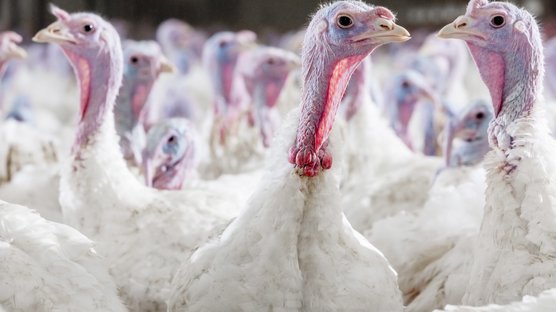
Published on June 2, 2025
The Case for Turkey as the Perfect Protein
In honor of June, also known as Turkey Lover's Month, let's dive into our favorite bird. The turkey.
Beyond highlighting the important work of those in the turkey industry, Turkey Lover's Month is the perfect opportunity to spread the word on the benefits of turkey. From a health and wellness standpoint to a sustainability factor, there are so many reasons to look for turkey in your next stop at the grocery store.
Protein: The Building Block of Nutrition
Protein has always played an important role in nutrition and health, but over the last five years, it has become even more central in consumer trends. In Cargill's 2025 Protein Profile, an annual trends report, has found that 61% of Americans are increasing their protein intake, up from 48% in 2019 (source).
Why Protein Matters
Protein, especially animal-derived proteins, offer a complete amino acid profile and are more digestible in the human gastro-intestinal tract than plant-based proteins. Additionally, protein can be a helpful tool in promoting muscle growth, weight management, and achieving satiety (source). Among animal proteins, turkey stands out as a lean, low-calorie option. Here's how turkey compares to chicken:
| Turkey | Chicken | |
|---|---|---|
| Protein (white meat) | 30 g | 31 g |
| Calories | 135 kcal | 165 kcal |
| Fat (white meat) | 1 g | 3.6g |
| Fat (dark meat) | 5 g | 8 g |
Micronutrient Powerhouse
Turkey is not just about protein. It’s also rich in essential micronutrients that support immune function, metabolism, and overall health:
- Iron
- Carries oxygen to the blood, maintains energy
- Zinc
- Key for immunity, healing, growth and development
- Vitamin B12
- Important for nerve function, DNA synthesis, red blood cell production
- Selenium
- An antioxidant that supports thyroid function
- Niacin
- Vitamin D
- Potassium
These nutrients make turkey a smart choice for those looking to boost their nutritional intake without excess calories or fat.

A Greener Protein Choice
For those looking to reduce their ecological footprint, turkey has a lower carbon footprint than beef, lamb or pork. This is where selective breeding plays a crucial role, particularly in making birds more feed efficient.
A recent Downstream Emissions study by Hendrix Genetics used Life Cycle Analysis (LCA) to evaluate the ecological benefits of improved turkey genetics. Drawing on data from the Global Feed LCA Institute (GFLI), the study assessed how feed ingredients contribute to CO₂ emissions, land use, and water consumption in Europe and North America.
We then analyzed the genetic trend in our pure lines to quantify the average genetic progress over the last 10 years. The findings? Emissions have decreased by an average of 1% per year—an encouraging trend to support the future of sustainable agriculture.
Why Try Turkey?
With its impressive nutritional profile and culinary versatility, we see the importance of giving the spotlight to turkey as the perfect protein. It's not just a holiday staple – it's a protein that deserves an important place at the table for individuals and families everywhere.



